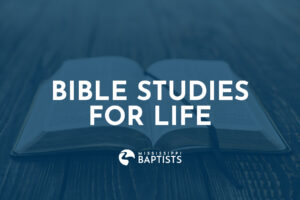Jesus Met My Greatest Need • John 4:7-18, 25-26
By Laura Lee Leathers

The word, “thirst,” is mentioned over 40 times in the Bible; it is a great word study. The term is first mentioned in Exodus 17:3 when the Israelites camped at Rephidim, a waterless site. They quarrel and grumble to Moses regarding their thirst.
Fearful for his life, Moses prays. God answers with specific instructions to Moses for the solution. The people are satisfied with water from a rock at Horeb.
Moving to the New Testament, our lesson today comes from another familiar “thirst” story: the Samaritan woman.
Jesus and His disciples are baptizing (known as “proselyte baptism” that symbolizes the desire for a heart cleansing) as they travel through the Judean countryside. John, the author, clarifies that it is the disciples baptizing, not Jesus.
Conflict is beginning as the Pharisees hear about what is transpiring. The disciples and Jesus leave Judea and walk toward Galilee.
The Jews hated the Samaritans; they were known as a corrupted form of the Jewish race because they stayed after the Assyrians invaded and mingled with the idolatrous Gentiles. Typically, a Jew would take the longer route if necessary to avoid these unclean people.
Jesus took the shorter route because He knew He had a sovereign intersection. In this lesson, we see His deity on the one hand and the physical limitations of his humanity on the other. It is the sixth hour – noon — and Jesus is worn out. Notice the word, “wearied,” in verse six. This is kopiaoin the original Greek, and it means to the point of sweat and exhaustion.
Jesus reveals a greater thirst in me (John 4:7-14 NKJV). Jesus is sitting near the well when the Samaritan woman comes to draw water. She is alone, and this is not the usual time of day to draw water. Jesus is alone because He sent the disciples into the city to purchase food.
“Give me a drink,” Jesus tells the woman. She recognizes this Man is a Jew, perhaps by His clothing. She asks why He, a Jew, was asking for water from “a Samaritan woman.”
Jesus makes the connection, “If you knew the gift of God… you would have asked Him, and He would have given you living water.” In her ignorance, she isn’t aware she needed this gift. In contrast, read the story of Nicodemus in the Book of John chapter three. He comes seeking, asking, and needy.
The Samaritan woman notices His empty hands and reminds Him that He has nothing with which to draw the water. She just couldn’t see the bigger picture. Then she proceeds to share the history regarding the well; it came from “our father, Jacob.”
Again, Jesus draws her back to the “living water” by stating that if she continues to drink from this well, she will continue to thirst. The only way to satisfy the thirst is to drink from the “springing up into everlasting life.”
Jesus reveals my sin (John 4:15-18). The Samaritan woman still didn’t understand, but she is all in to receive the water if it means she doesn’t have to draw water again or be thirsty. Jesus, being divine, goes to the real issue: sin.
He knows she is an immoral woman. Notice the back-and-forth conversation between them: no husband now, five husbands in the past. Jesus affirms her honesty, and the eyes of her heart are opened to her sin and need.
Jesus reveals that He is the Messiah, the one to trust (John 4:25-26). Please don’t rush over the final two verses of today’s lesson. The Samaritan woman knows that the Messiah is coming, and when He does, He would “tell us all things,” and Jesus replies, “I who speak to you am He.”
For the first time in the Gospel of John, Jesus reveals He is the Messiah — and it’s to a woman. Not the religious leaders of Israel but to a Samaritan. Not to the pious Jews but to an outcast. Not to the elite, but to less than a commoner in that society.
Jesus offers her the gift of “living water.” The woman believes Him, leaves her jar of water, and goes into town telling everyone what happened and who she met — The Christ. In verses 39 and 41, John tells us that many in the town believe in Him because of her testimony and because of His word.
Turn to John 20:31. John wrote this book so that, “you may believe that Jesus is the Christ, the Son of God, and that believing you may have life in His name.”
Has your thirsty soul been filled with the “living water?”
Leathers is a member of First Church, Lexington. She may be contacted at laura.l.leathers@gmail.com.



